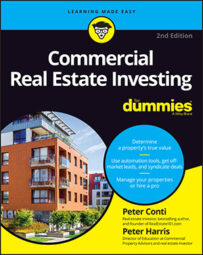The most beautiful property could be a part of the worst real estate investment you've ever made. Remember that commercial real estate investing is all about the deal, the terms, and the return on investment. Here are some tips for successful commercial real estate investing:
- Be an investor instead of an accumulator of commercial properties. The whole idea of making investments is to produce an income or a profit. So, if you buy a property that produces no income or profit, you really just acquired a property (instead of making an investment).
- Understand that every property has a lifetime. One of the biggest mistakes you can make as an investor is to ignore the fact that over time, you'll have to spend money on the upkeep of the building. The building may need a new roof, and the electrical system may need to be updated. Every building goes through these phases; some more so than others. So make sure you have a long-term plan to handle such repairs.
- Focus on one investment type at a time. Especially when you're first starting out, you should focus on one type of investment: apartments, offices, retail, land, or whatever. Each deal needs and deserves your undivided attention. It's better to be master of one than average over many. And who wants average-performing properties anyway?
- Consider environmental problems. A huge potential concern when owning commercial property is hazardous waste problems. Property owners have the primary responsibility for fixing such problems, even if the current property owner didn't cause them.
- If at some point you held an ownership interest in a property, you're potentially responsible for paying for the cleanup of it. The costs for an environmental cleanup and disposal can run into the millions of dollars. Obtain an environmental report from environmental assessment companies as part of your due diligence if needed. The reports cost a bit, but it can save you even more.
- Get a mentor so you can learn from his or her mistakes. Mentors can save you from making huge mistakes, identify when you've missed due diligence items, and connect you with resources that you otherwise wouldn't have immediate access to.
- Determine whether you and your assets are adequately protected. Unfortunately, as life happens, so do lawsuits. That means you need to do everything you can to protect yourself. Ask yourself the following questions to determine whether you're protected:
• What do you have at stake if you lose a lawsuit?
• How is your property protected?
• Is your personal property (for example, your home) protected?
• Are your other investments totally separate from each other so that one lawsuit doesn't affect the other investments?
- Don't guess when it comes to the answers to these questions. Talk to a lawyer to ensure that you're protected if you're sued.
- If you're in a partnership deal, do your best to finance your deal with a non-recourse loan. Non-recourse means that you aren't personally guaranteeing the loan. This gives you two distinct advantages: it allows you to be taken off the loan if the partnership goes sour and, if the property fails, it won't be tied to you personally.

